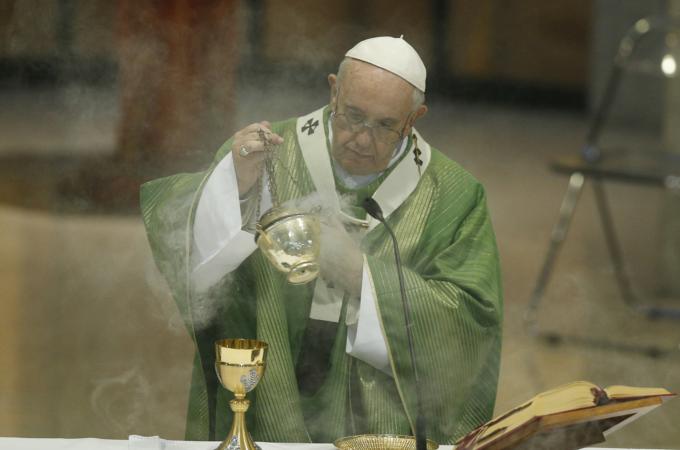Is incense harmful to health?
Q. Since it is now known that incense is medically harmful -- causing asthma, contact dermatitis and lung cancer -- why does the church continue to use it? I am severely asthmatic, and a fairly large number of our elderly parishioners are oxygen-dependent. Our pastor will not make concessions, which means that a number of us have no way of attending Mass. (Oregon)
A. At least once a year someone submits a question to this column about the potential for health hazards caused by the use of incense in church -- or at least raises the complaint that it is bothersome to the writer personally. The frequency of the question inclines me to think this issue merits a serious study -- perhaps outsourced by the church to medical authorities.
Incense, an aromatic substance made from the resin of certain trees, has been used in religious rites as far back as the 15th century B.C. in Egypt. Its use was common in Jewish worship and was carried over into Christian practice, where the smoke of the incense has been viewed as a symbol of the prayers of worshippers rising to heaven.
A U.S. News & World Report article in 2008 made note of a study that linked long-term incense exposure to an increased risk of respiratory cancer, and I uncovered one reference to an Environmental Protection Agency concern about the nexus between incense smoke and lung inflammation.
But I would think more research needs to be done for a link between the occasional use of church incense and medical problems to be established definitively. I do remember a 2014 Catholic News Service story, where the Allentown Diocese in Pennsylvania suggested the use of a certain hypoallergenic incense to prevent worshippers from developing headaches or breathing problems.
All of which leads me to recommend that a pastor be especially solicitous to parishioners' concerns: Incense is not mandated by the church at any particular Mass, and why make it harder for people to come to church?
Q. In one of your recent columns, you stated: "Strictly speaking, one is obliged to go to the Sacrament of Penance only for serious sins -- although it is certainly a good idea to confess regularly even for lesser sins and imperfections."
The Catechism of the Catholic Church says, however (No. 1457), that all Catholics should go to confession at least once a year. If this is actually a precept of the church, my understanding is that all of the precepts must be obeyed under penalty of mortal sin. Can you explain your position on this and why it differs from the catechism -- or was it just an oversight? (Indianapolis)
A. I stand by my recent answer, and it is consistent with Catholic teaching. The section to which you refer (No. 1457) in the Catechism of the Catholic Church, referencing the church's Code of Canon Law, actually says this: "After having attained the age of discretion, each of the faithful is bound by an obligation faithfully to confess serious sins at least once a year."
Again, though, I make a plea for much more frequent confession, even for venial sins. The introduction to the church's rite of penance states: "Frequent and careful celebration of this sacrament is also very useful as a remedy for venial sins. This is not a mere ritual repetition or psychological exercise, but a serious striving to perfect the grace of baptism so that ... his (Christ's) life may be seen in us ever more clearly."
- Father Kenneth Doyle is a columnist for Catholic News Service



















